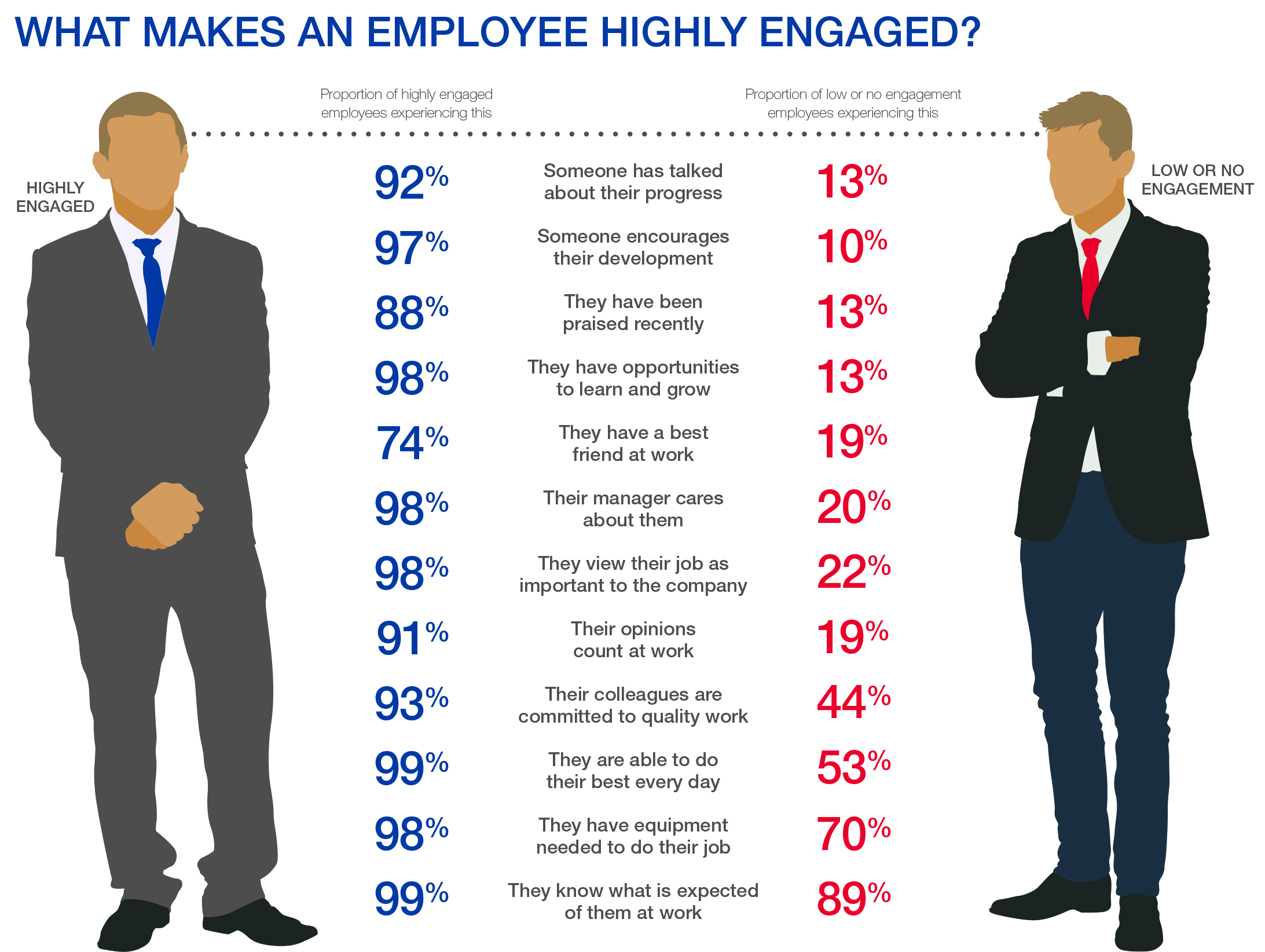
Why it's Time to Make Better, More Engaged Jobs
More pay and better engagement. Your employees want these, and so should you.
With a plethora of jobs available in retail stores, hospitality industry, call centers and garment workers – most of them come with low pay, few benefits, and no career paths. Established thought for decades promotes that bad jobs are the inescapable cost of low-budgeted service.
Well, not for long.
In the past 3 years, large American companies including the likes of Walmart, McDonald’s, GAP, Starbucks, IKEA, and others have embraced a novel new strategy to attract new workers: by raising their wages. They have found that it is a good start to raise their level of engagement.
In another research, Hay Group studied that engaged employees will exceed expectations two times more than non-engaged ones. And companies who train their workforce outperform other firms – by 54% in employee retention, by 89% in customer satisfaction, and by fourfold in revenue growth.
This is why now Walmart is training its people, and streamlining its operations – to make workers more productive. And in order to come up with more-predictable schedules GAP is reinventing itself. And call center reps in Aetna are given the freedom to use more discretion to meet customer needs.
Here’s what your company can do to increase engagement and make jobs better:
- Let People Be
Let people be full of knowledge and talent. Be an individual. Be themselves. Uncovering biases in companies isn’t easy, for all the structure that we talk in terms of competence models, appraisal systems, tightly defined objectives and recruitment policies narrow the range of acceptable behavior.
You Must Read: Benefits of an Employee Engagement Program
An individual often runs up against countervailed efforts that are aimed to increase a brands effectiveness through clear incentive systems and career paths. However, companies that succeed in nurturing individuality can do so by absorbing a myriad of skill-sets and personalities which can be a key to their success strategy.
That means, managers still make their expectations clear, but self-determination or self-driven goals set the path to an individual’s accountability and ultimate success.
- Tell People the Truth
In many places, managers use chunking-out of information on a need to know basis to maintain employee efficiency. Others practice stonewall certain information even in the most negative situations. While others may just distort or spin it. Recognize that in the age of Facebook, Twitter and LinkedIn, one is better off telling the truth coming from their own before someone else does. ‘Radical honesty’ is a way that respects an employee need to know what’s really going on – be candid, clear and complete – and to keep everyone aligned and do their jobs more strategically and effectively.
- Expand on People’s Strengths
The competition for talent acquisition is getting fierce. Companies are trying to add more value to their existing workforce instead of finding new employees. In specialized sectors of technology, finance, and training, the challenges of retaining workers are rampant. To mitigate them, companies like Lupin India are running effective programs in which newly inducted and existing employees are given stretch roles of performance with huge responsibilities, and they are acknowledged fully for their contributions.
- Stand for More Than Shareholder Value

It is important for any company to invoke the trust of its employees in the brand culture that it endorses. The millennials prefer working in an organization that stays true to its goals and offers them a reason to stay focused on their work. It should stand for its brand values and delivers to its promise. Take, for example, HCL Technologies, a leading software development giant in the country. It runs a unique program that allows every employee to come up with a great idea to resolve customer challenges.
- Make Rules Legitimate
Without the need to say, organizations need structure. They must follow processes and tightly-constricted quality controls to compete in the current markets. However, this process need not become complicated, or even bureaucratic – and that’s only if the ruled can be viewed as legitimate.
Read: Talent and Innovation: What's Next in HR Tech?
For example, a company that manufactures essential oils for the developed world has begun to master workplace behavior that can boost its growing operations without risking its culture. Only immediate level of approval is needed for all its hiring (and firing) decisions. More so, calls are preferred over emails and ‘ccs’ to explain knowledge-driven decisions. Managers are given clear top and bottom-line targets with significant freedom to operate within. All these act as enhancers and not threats to the cultural system of the growing organization.
Work can be made liberating instead it of being alienating or exploitative and controlling. Make good jobs matter.
Image Source: bradsbygroup .com
 👋 contact us
👋 contact us



